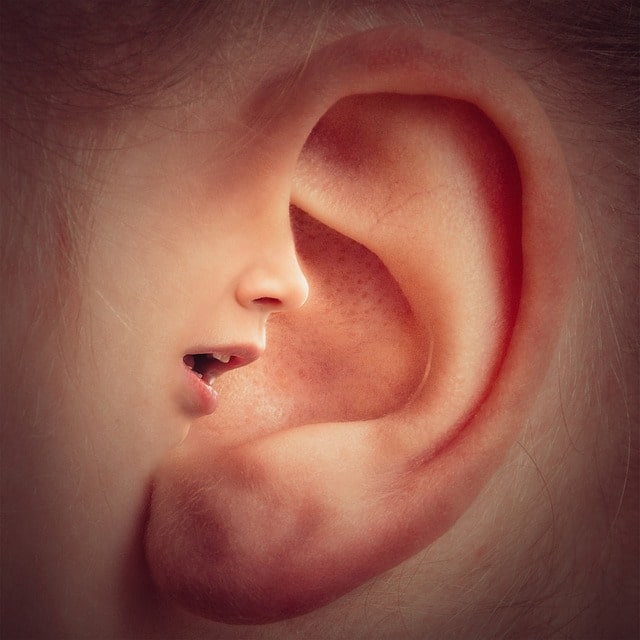Can an Ear Infection Cause Diarrhea?
Ear infections are common, particularly among children, and are typically associated with symptoms like earache, fever, and hearing problems. However, sometimes patients or parents of young children may report concurrent gastrointestinal upset, especially diarrhea. It might seem puzzling – how could an infection in the ear possibly influence the digestive system? In this blog post, we will explore the intricate connections between various body systems and consider whether there is, in fact, a link between ear infections and diarrhea.
Understanding Ear Infections
First, let’s delve into the basics of ear infections. Ear infections can be classified into three main types: otitis externa (infection of the outer ear), otitis media (middle ear infection), and otitis interna (inner ear or labyrinthitis). Among these, otitis media is the most common.
**External Otitis (Swimmer’s Ear)**: A bacterial infection usually happening when water trapped in the ear canal leads to an infection.
Otitis Media: Often happens as the result of another illness such as a cold. Fluid builds up behind the eardrum and gets infected with bacteria or viruses.
**Otitis Interna (Labyrinthitis)**: Is more severe and affects the inner ear, potentially leading to vertigo
Possible Links Between Ear Infections and Diarrhea: An Overview
The Role of Antibiotics
One credible connection between ear infections and diarrhea is the use of antibiotics. Patients, especially children with middle ear infections, are often prescribed antibiotics to fight the infection. While antibiotics are effective at killing bacteria causing the infection, they can also wipe out beneficial bacteria in the gut, leading to diarrhea.
Dysbiosis: This refers to an imbalance in the gut microbiota, which can lead to gastrointestinal symptoms like diarrhea.
Broad-spectrum Antibiotics: Broadly-targeting antibiotics are more likely to disrupt the natural balance of gut flora since they aren’t specific to the bad bacteria causing the ear infection.
Antibiotics in Children: Children, whose digestive systems are still developing, can be particularly vulnerable to the side effects of antibiotics, which include diarrhea.
Anatomical Considerations
In some cases, it is theorized that the infection might indirectly spread or its effects carry over to impact gastrointestinal health. While a direct link between the ear itself and the bowel can’t be established due to distinct anatomical pathways, let’s look at a couple of scenarios where an ear infection might indirectly lead to gastrointestinal distress.
Eustachian Tube Dysfunction: The eustachian tube connects the middle ear with the back of the throat and helps balance air pressure but when infected can create a perfect environment for transfer of pathogens.
Swallowing Infection: If there’s an excess of mucus produced due to the infection, it might find its way into the digestive system, potentially upsetting it.
Immune Response
Another link between the occurrence of ear infections and gastrointestinal disturbances could be the body’s overall immune response.
Inflammatory Response: When your body fights infection, a systemic inflammatory response is activated which isn’t limited to the area of infection.
Proinflammatory Cytokines: These immune system proteins mediate inflammation and might contribute to the irritability in the gastrointestinal tract.
General Malaise and Stress on the Body
Additionally, the stress of being ill can upset a child’s gastrointestinal system. The general malaise and discomfort that accompany an ear infection might decrease appetite or alter a child’s eating habits leading to gastrointestinal upset, including diarrhea.
Altered Eating Patterns: When sick, individuals may turn to different, potentially less-digestible foods which can disrupt their bowel habits.
Stress: The body’s stress response, combined with potential fevers and medication, may also upset the digestive system.
Food Allergies and Intolerance
A discussion on diarrhea accompanying an ear infection isn’t complete without mentioning the potential for co-occurring food allergies or intolerances. If a child begins taking in more of a food or beverage not typically included in their diet during their illness – such as dairy in the form of milk-based shakes meant to soothe their throats – an underlying lactose intolerance may present itself as diarrhea.
Change in Diet: Increasing intake of certain foods during illness could reveal previously unidentified sensitivities.
Allergies Older and Reactions: Reactions to certain food groups can develop later in life, and eliminating these can reduce instances of diarrhea.
Myth-Busting: Can Ear Infections Spread to the Stomach?
There are myths and misunderstandings concerning human anatomy and infection pathways, like the worry that an ear infection will “spread to the stomach.” This anatomical confusion might stem from a misunderstanding of how pathogens or their effects can circulate within our bodies.
Infection Spread: Pathogens responsible for ear infections typically do not travel to the gastrointestinal tract.
Systemic Reaction: It is not the spread of the infection as much as it is the systemic repercussion of the infection that impacts our gastrointestinal system.
When to See a Doctor
If your child or if you experience severe diarrhea, notably if accompanied by high fever, excruciating ear pain, or other serious symptoms such as dehydration, it’s important to seek medical advice.
Persistent Symptoms: If diarrhea persists following the initial ear infection and seems unlinked to the other potential causes discussed, you should consult a healthcare provider.
Dehydration Risks: Especially in children, maintaining proper hydration is crucial, and severe diarrhea can quickly lead to dehydration, a serious concern.
Watch for signs of dehydration, such as dry mouth, no tears when crying, and infrequent urination in children; these signs warrant immediate medical attention.
Tips for Managing an Ear Infection and Preventing Diarrhea
Given the link with antibiotics and considering the potential for a systemic inflammatory response, there are ways to manage an ear infection holistically to minimize the risk of diarrhea:
Probiotics: These can help maintain good bacteria in the gut during antibiotic treatment.
Balanced Diet: Keeping a balanced diet during illness can support the body’s overall health and resist gastrointestinal upset.
Hydration: Sufficient fluid intake is essential to help mitigate the effects of diarrhea.
Rest: Adequate rest helps the body heal and retain energy during the infection battle.
To conclude, while an ear infection does not directly cause diarrhea, there are various pathways by which the treatment for an ear infection or a body’s response to sickness can lead to gastrointestinal concerns such as diarrhea. It emphasizes the interconnectedness of our various body systems and showcases the significance of managing both the primary ailment and the potential side effects, offering us opportunities to foster well-rounded healthcare. If your child is experiencing any worrying symptoms during an ear infection, don’t hesitate to reach out to your healthcare provider for personalized guidance.

